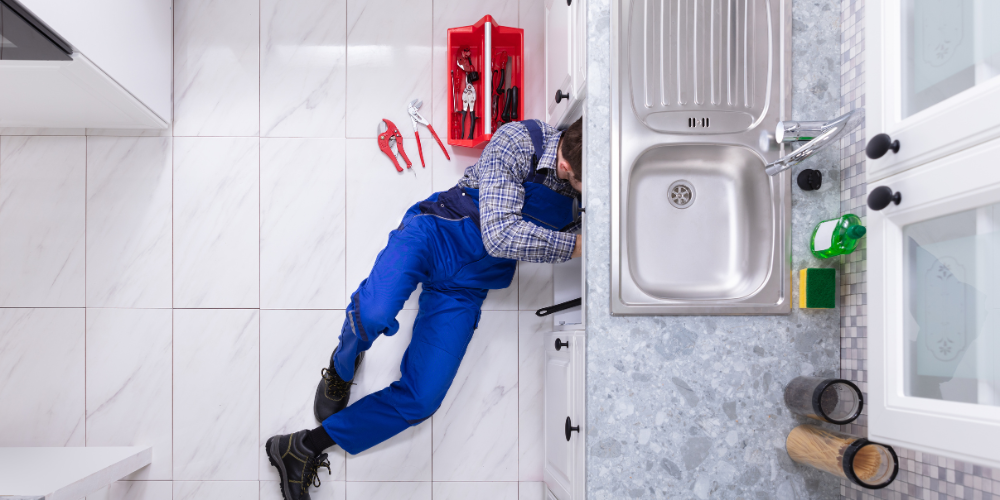The Difference Between a Handyman and a Professional Plumber in Seattle
As a homeowner in Seattle, you've probably faced a leaky faucet, a running toilet, or a clogged drain. Your first thought might be to call a handyman, especially for what seems like a small job. But when it comes to your home's plumbing, there’s a big difference between a handyman and a professional, licensed plumber.
Understanding this distinction is crucial not only for the quality of the work but also for your safety and legal protection.
What Makes a Plumber a "Professional Plumber in Seattle"?
It's more than just carrying a wrench. A professional plumber in Washington State, and specifically in the City of Seattle, has to jump through some serious hoops to earn their title.
Extensive Training & Apprenticeship: To even be considered for a license, a plumber must complete thousands of hours of on-the-job training. This is a multi-year apprenticeship where they learn under the direct supervision of a certified plumber. They gain hands-on experience with everything from basic repairs to complex sewer line installations.
Licensing and Certification: In Washington, plumbers must pass a rigorous certification exam to become a Journey Level or Specialty Plumber. This exam tests their knowledge of plumbing code, general trade practices, and complex systems. This isn't just about skill; it's about knowing the legal and safety requirements that protect your home.
Bonding and Insurance: A licensed plumber is required to be bonded and insured. This is a critical layer of protection for you, the homeowner. If an accident happens on the job or a mistake is made, their insurance covers the cost of damage, protecting you from a major financial liability.
Knowledge of Local Codes: Seattle has its own unique plumbing codes and regulations. A local, licensed plumber is an expert in these codes and knows how to ensure all work is compliant. This is essential for permits and passing inspections, especially for larger jobs like water heater installations or bathroom remodels.
The Handyman's Role
Handymen are valuable for a wide range of tasks around the house, from hanging a TV to painting a room. They are generalists with a broad skill set, and for many minor repairs, they can be a great, cost-effective option.
However, in Washington State, there are very specific laws about what a handyman can and cannot do. A handyman can legally perform very minor plumbing work, but they are not permitted to work on projects that require a plumber's license. This includes tasks like installing new pipes, replacing a water heater, or repairing a sewer line.
Trying to save a few dollars by using a handyman for a job that requires a professional plumber can lead to:
Subpar Workmanship: A lack of specialized training can result in incorrect installations or temporary fixes that fail quickly, leading to more expensive repairs down the road.
Violating Local Codes: An unlicensed professional may not be aware of or adhere to the proper building codes, which can create safety hazards and make it difficult to sell your home in the future.
No Recourse for Damage: If an unlicensed worker causes a flood or other damage to your home, you may be on your own to cover the costs, as they often don't carry the necessary insurance.
When to Call a Pro vs. a Handyman
Call a Professional Plumber in Seattle when the job involves:
Sewer and Drain Line Issues: Clogs that are not resolved by a simple plunger or snake, especially if they are recurring.
Water Heater Problems: Installation, repair, or replacement of any water heater.
Burst Pipes or Leaks in Walls: Any issue that requires cutting into walls or major pipe replacement.
Gas Line Work: This should always be handled by a licensed professional.
Installing New Fixtures or Appliances: Especially if it requires significant modifications to your existing plumbing.
A Handyman may be appropriate for:
Tightening a loose faucet.
Changing a shower head or a toilet flapper.
Unclogging a very simple drain with a plunger.
Ultimately, a professional plumber is an investment in the long-term health of your home's most critical systems. It’s about more than just fixing a problem—it’s about ensuring the work is done safely, correctly, and to code.
For any plumbing job in Seattle, big or small, trust the professionals. Contact Us Today.

